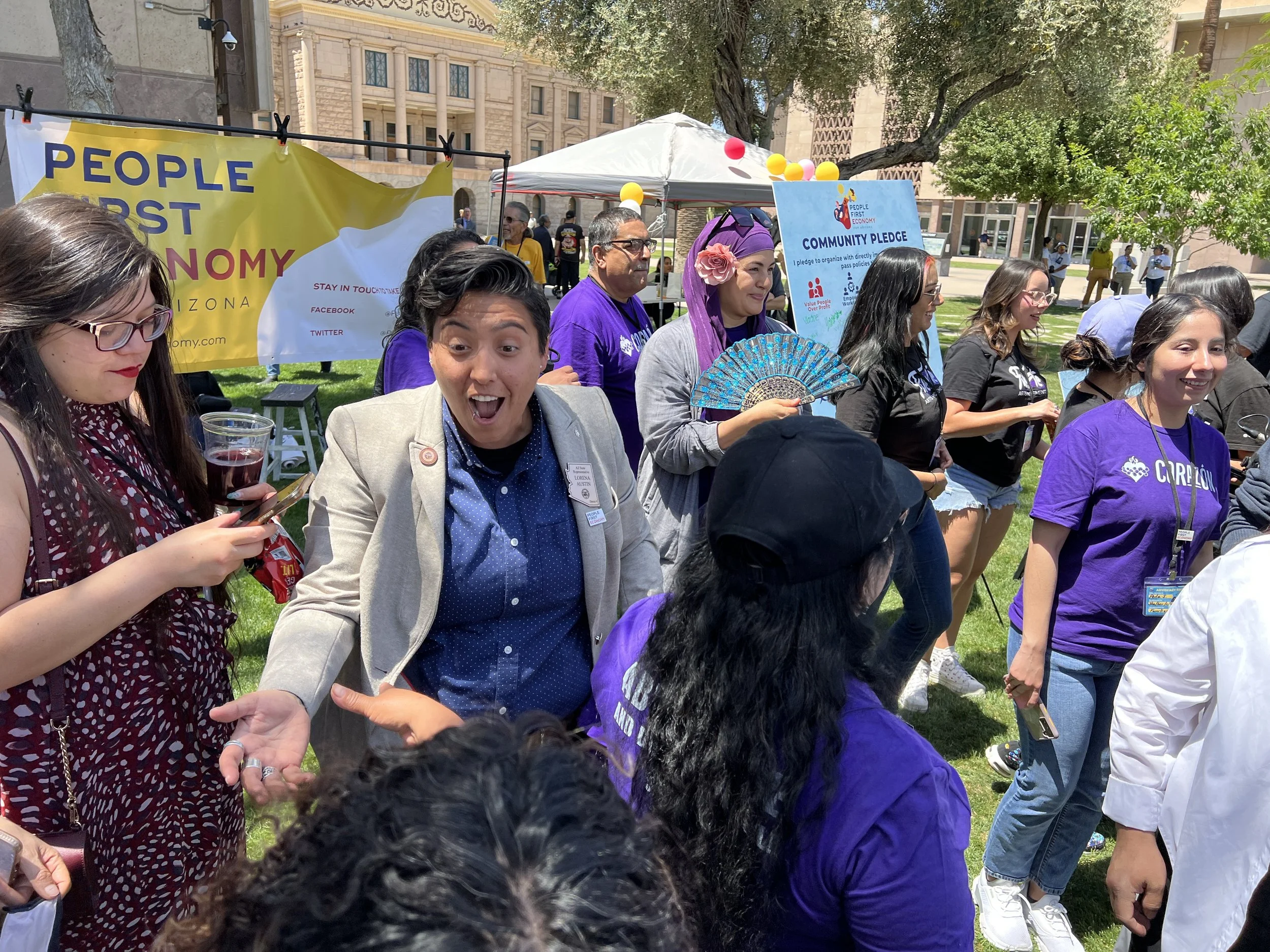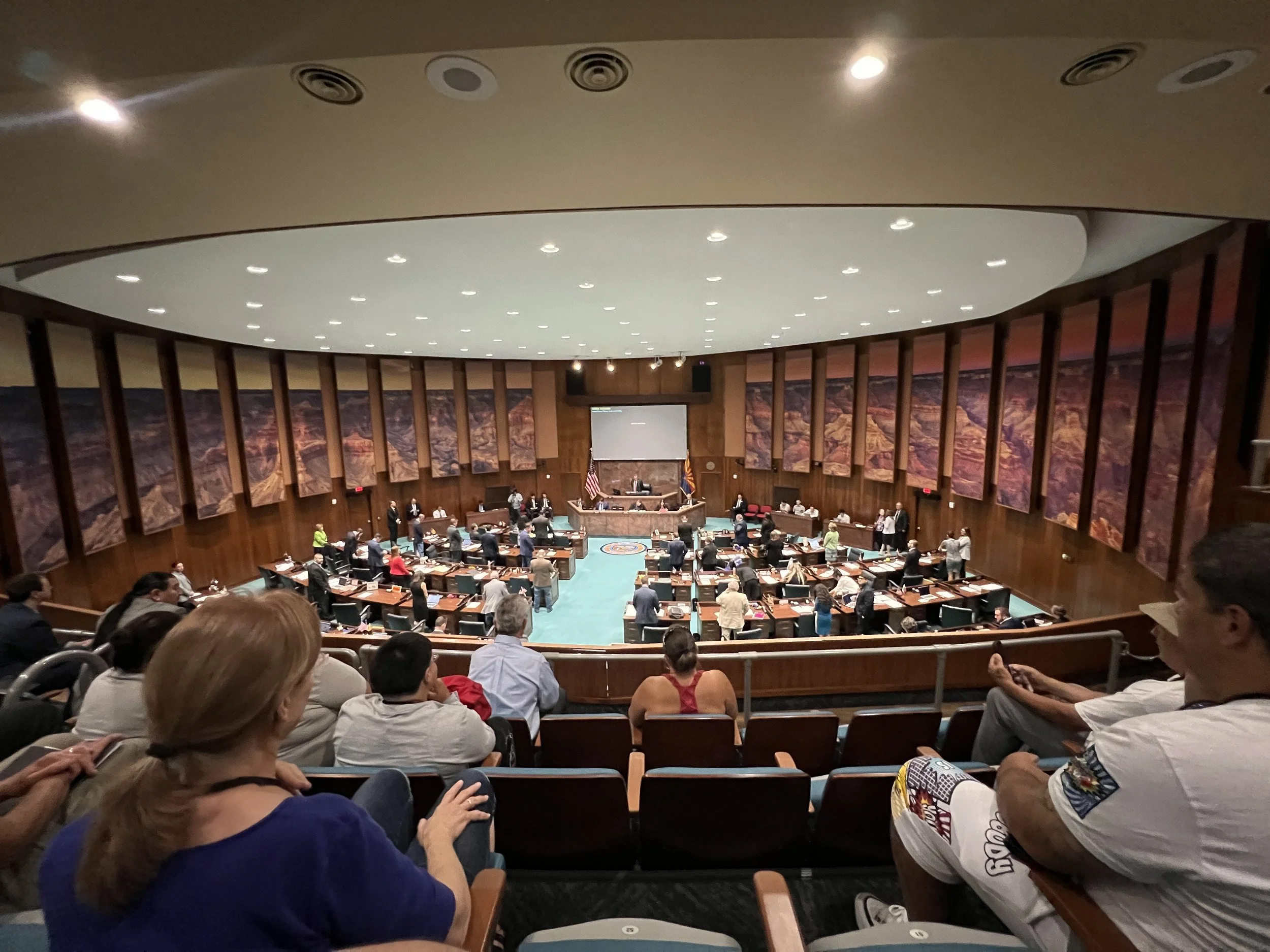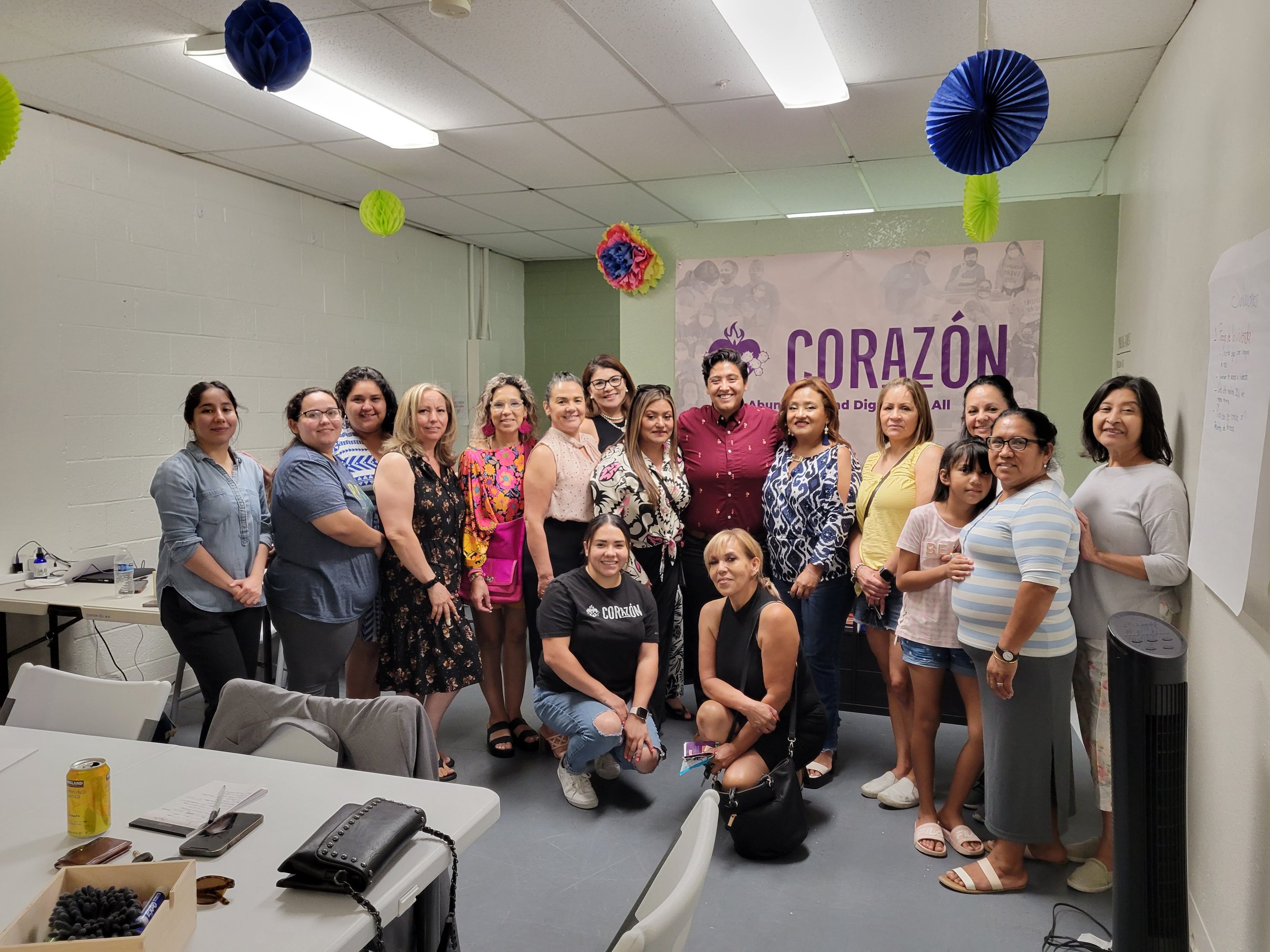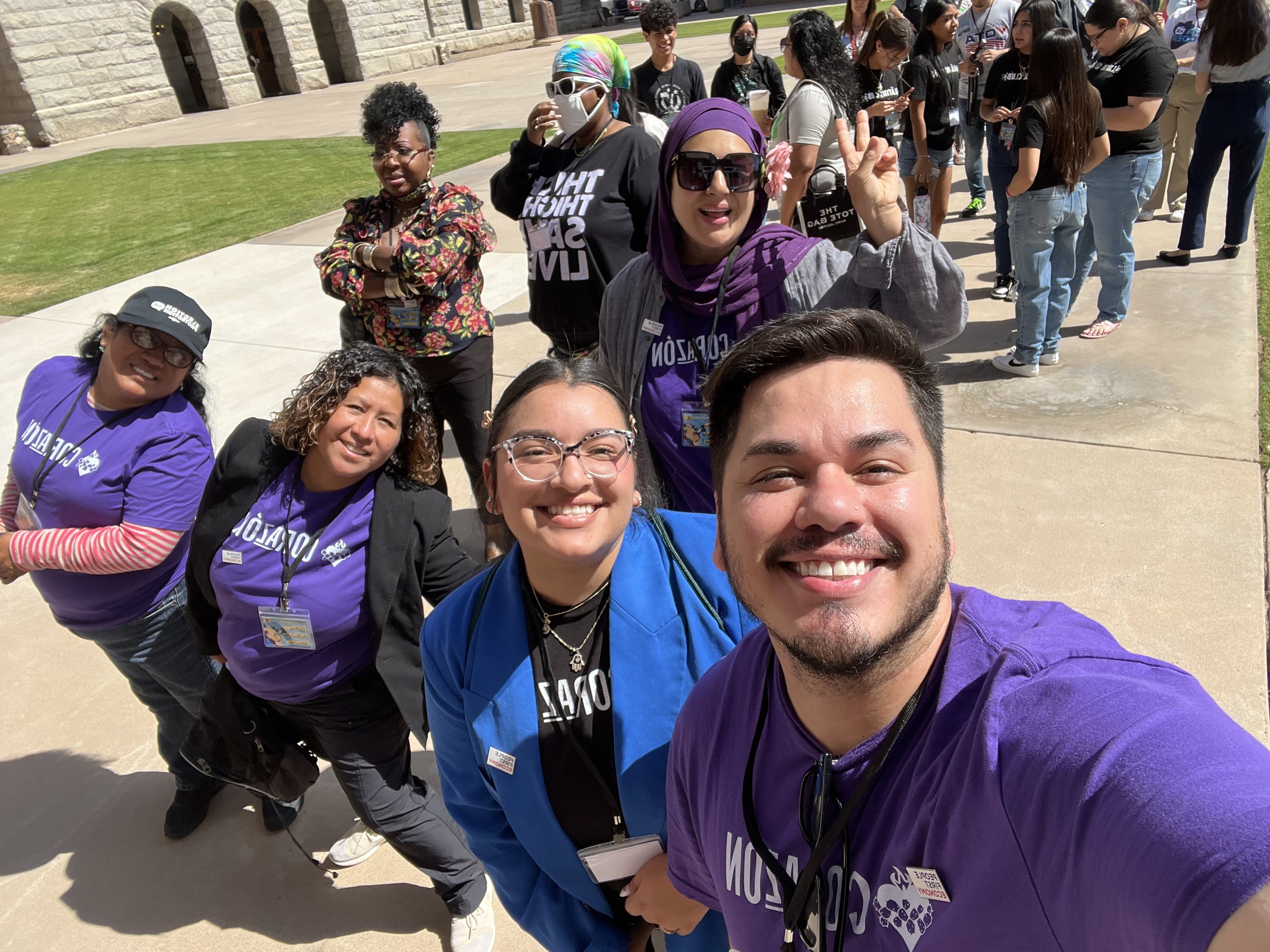
We help equip community leaders with the skills needed to reach out into their neighborhoods, identify common concerns, research possible solutions, and work with public officials and private businesses to put those solutions into effect.
How We Organize
Organizing begins with the radical act of imagining a different future. Some traditions call this “prophetic imagination,” one that is inspired by the vision of a higher power or Creator.
While we imagine the world as it should be, this imagination is always informed by an understanding of the world as it is. The reality in our community, the world as it is, is often painful for communities that have been isolated and excluded, particularly those racially and economically excluded. It is essential to listen to the voices directly impacted because they’re at the center of the solutions and can truly develop a picture of the world as it is and expose injustice.
We do this by building relationships through conversations, or “one-to-ones.” Through these conversations, a whole web of relationships is created in a community, and people find the ways that our experience intersects with others and find that we are not alone. Unity develops through shared experience. Through research on the issues affecting the community, we find that our individual pain frequently has systemic and structural roots, rather than being a result of a personal moral failing.
House of worship-based organizing has the profound moral resource of offering an imagination of a different future, one of justice, freedom, and equity. The scriptures and traditions of our faiths offer hope and vision for the possibility of transformation. They empower us with imagination.
Furthermore, we are called to live out our faith commitments by working to advance justice and equity. Each tradition offers the imagination of a just and equitable future AND calls upon the faithful to work to make this image a reality.
Through organizing, we connect this hopeful imagination of the world as it should be with the reality of the world as it is now. We give people tools to change the systems and structures that oppress them. We draw on the web of relationships as the source of the power and strength to transform our community and build racial and economic equity.







